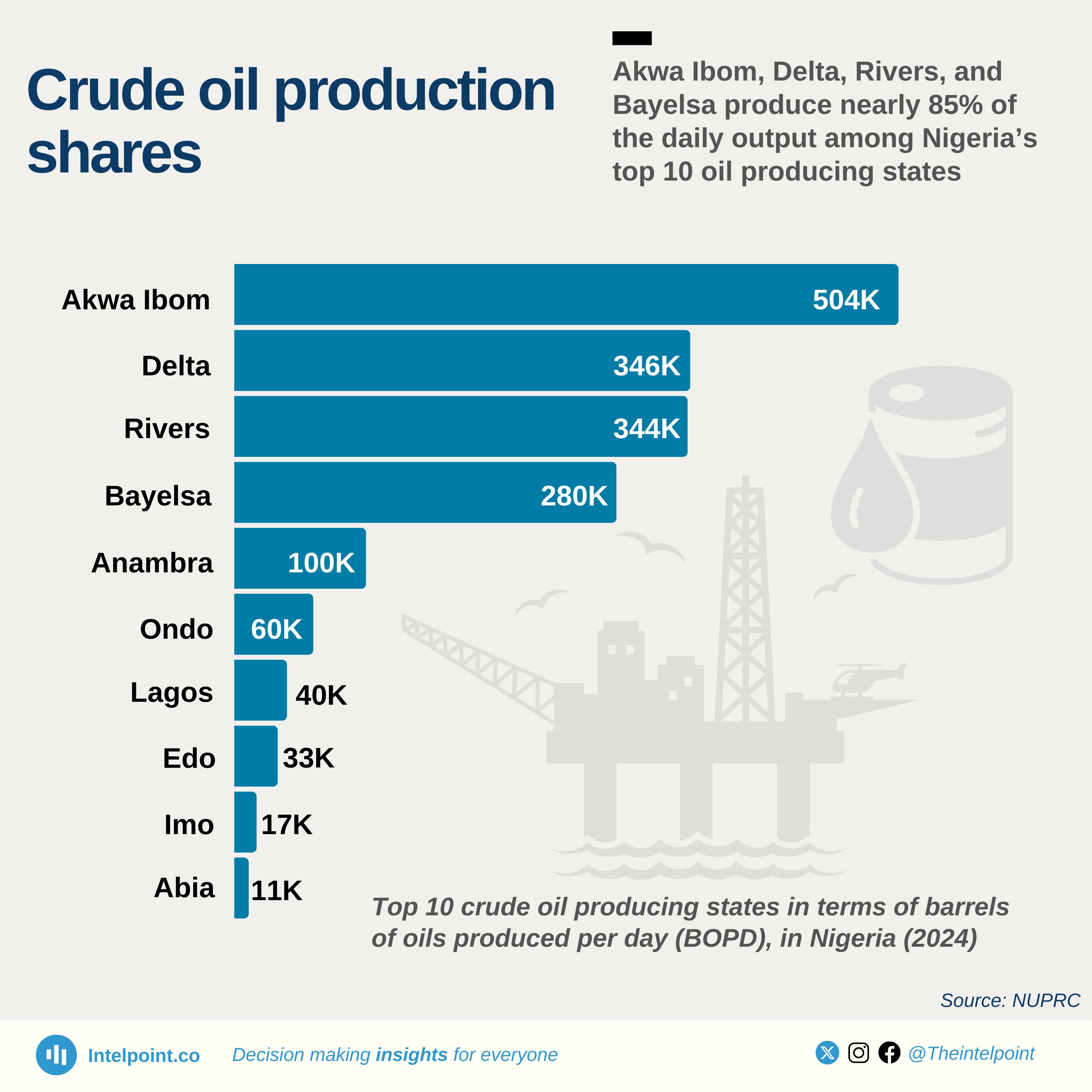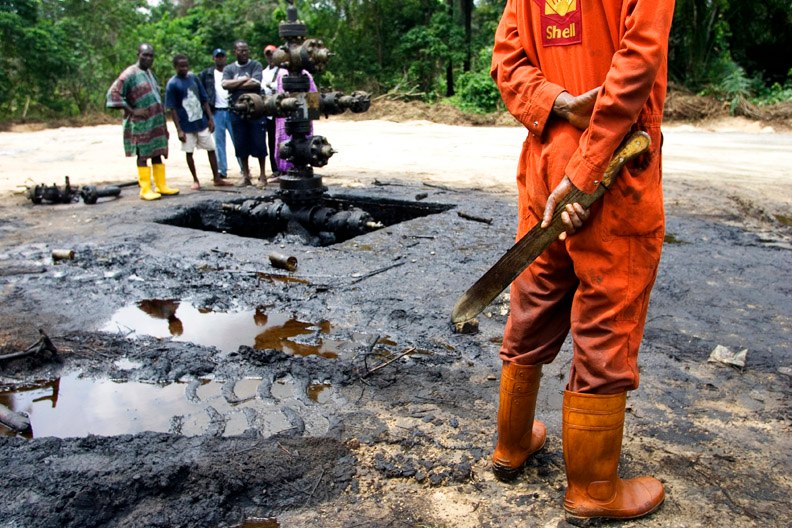General
Nigeria’s top 10 oil-producing states by daily crude output
Nigeria is a leading oil-producing country in Africa, with crude oil dominating its economy.
Business Insider Africa
published: Mar 21, 2025


Nigeria is a leading oil-producing country in Africa, with crude oil dominating its economy.
- Nigeria is a leading oil-producing country in Africa, with crude oil dominating its economy
- Nigeria's oil wealth is concentrated in the Niger Delta region, with Akwa Ibom leading in crude oil production
- Many oil-producing states in Nigeria remain underdeveloped with high unemployment rates, poor infrastructure, and limited industrial diversification
The Niger Delta, home to several oil-rich states, is Nigeria's oil-producing hub and a major contributor to its daily output.
While the oil sector has generated considerable economic benefits, including investments, jobs, and government revenue, it has also spawned numerous challenges.
Environmental pollution, oil spills, gas flaring, and conflicts over resource control have plagued the region.
DON'T MISS THIS: Nigeria unveils ambitious goal for its oil sector

Moreover, communities in the Niger Delta have long suffered from neglect, underdevelopment, and environmental degradation, fueling agitations for improved resource management and a more equitable distribution of oil wealth.
According to the Nigerian Upstream Petroleum Regulatory Commission, the following states produce the highest volume of crude oil;
| Rank | State | Barrels per Day (bpd) |
|---|---|---|
| 1 | Akwa Ibom | 504,000 |
| 2 | Delta | 346,000 |
| 3 | Rivers | 344,000 |
| 4 | Bayelsa | 290,000 |
| 5 | Ondo | 60,000 |
| 6 | Lagos | 40,000 |
| 7 | Edo | 33,000 |
| 8 | Imo | 17,000 |
| 9 | Abia | 11,000 |
| 10 | Anambra | 3,000 |
Akwa Ibom leads with 504,000 barrels per day, followed closely by Delta and Rivers with 346,000 and 344,000 barrels, respectively.

Along with Bayelsa, these states account for nearly 85% of the country's crude oil output, with the remaining oil-producing states, including Ondo, Lagos, Edo, Imo, Abia, and Anambra, contributing the balance.
The paradox of oil wealth
While these states contribute immensely to the national economy, their local economies do not necessarily reflect this wealth.
Many remain underdeveloped with high unemployment rates, poor infrastructure, and limited industrial diversification.
Despite the revenue generated from crude oil, many oil-producing states experience economic hardship due to factors such as poor governance, corruption, and an overdependence on oil.
Although the federal government controls most of the revenue, 13% of this revenue os allocated to the producing states. However, corruption, inefficiency, and misallocation of resources hinder meaningful progress.
Environmental degradation worsens economic challenges, as devastating oil spills and gas flaring destroy local ecosystems, undermining traditional livelihoods such as fishing and farming. This has left communities dependent on government aid, trapped in cycles of poverty..
Furthermore, unemployment persists in Nigeria's oil-producing states, despite their wealth.
The oil industry is capital-intensive, providing relatively few jobs compared to manufacturing or agriculture. As a result, these oil producing states experience high unemployment rates, fueling frustration and social unrest among young people.
This paradox highlights the need for policy shifts to develop industries beyond oil.
Read More